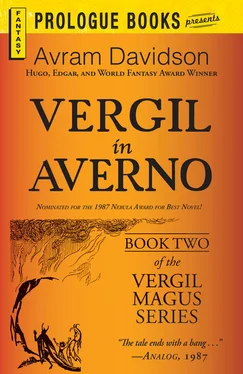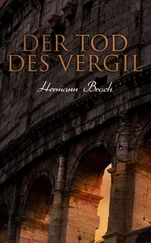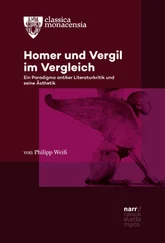Avram Davidson - Vergil in Averno
Здесь есть возможность читать онлайн «Avram Davidson - Vergil in Averno» весь текст электронной книги совершенно бесплатно (целиком полную версию без сокращений). В некоторых случаях можно слушать аудио, скачать через торрент в формате fb2 и присутствует краткое содержание. Жанр: Фэнтези, на английском языке. Описание произведения, (предисловие) а так же отзывы посетителей доступны на портале библиотеки ЛибКат.
- Название:Vergil in Averno
- Автор:
- Жанр:
- Год:неизвестен
- ISBN:нет данных
- Рейтинг книги:3 / 5. Голосов: 1
-
Избранное:Добавить в избранное
- Отзывы:
-
Ваша оценка:
- 60
- 1
- 2
- 3
- 4
- 5
Vergil in Averno: краткое содержание, описание и аннотация
Предлагаем к чтению аннотацию, описание, краткое содержание или предисловие (зависит от того, что написал сам автор книги «Vergil in Averno»). Если вы не нашли необходимую информацию о книге — напишите в комментариях, мы постараемся отыскать её.
Vergil in Averno — читать онлайн бесплатно полную книгу (весь текст) целиком
Ниже представлен текст книги, разбитый по страницам. Система сохранения места последней прочитанной страницы, позволяет с удобством читать онлайн бесплатно книгу «Vergil in Averno», без необходимости каждый раз заново искать на чём Вы остановились. Поставьте закладку, и сможете в любой момент перейти на страницу, на которой закончили чтение.
Интервал:
Закладка:
Iohan. Mostly, as they had walked and worked together, as they visited not the wastes alone but the manufacturies, the boy had been silent, perhaps in awe, perhaps from fear. Now and then he had made some comments, some few. Once, for instance: “They be clever, mighty things, master, these arts of fire and metal. Canny things, they be.”
Absently, yet with some touch of playful scorn, Vergil had asked if the boy might like to stay and study them. There. The young face, which had lit up for a moment, sank into some show of contempt not the least bit playful. “ ‘Study them’? Mayhap, master. That might be, ser. But. . ser. . here? Were I lingered here, ‘twould be my death I’d study.”
Vergil had said nothing more of that. Now he came down, greeted his servant, looked at the mare. Still, she looked familiar — had he ever mounted her before her hiring? She looked, also, in good fettle. “They care for her well, then, boy?”
The boy flung his head back, looked at his employer eyes-to-eyes, though the eyes of one of them looked up and the other’s eyes looked down. “ ‘They’? Ser, I cares for her. ‘Well’? Didn’t I feed her, she’d go ill-fed. Didn’t I sleep in her stall, like that they’d cut her tail off to sell the hairs; belike worse they’d do to her. . though she’s a canny beast, master, ser. Seems this morning she wants to be the better for a ride about, and thus, ser, I have taked the liberty. For perhaps you, too, ser. Therefore.”
Iohan’s therefore included a good deal more than a rhetor might allow. But it was full understood. He had laced his fingers and was about to bend and help Vergil mount when suddenly he stopped. He did say nothing, but his eyes moved, and Vergil’s followed their direction. It was Cadmus they saw, and this the second day in a row that Vergil had seen him. Whether the King of Fools still danced in the muddy market or hung bright tapetties upon the black walls or flung garlands round the necks of black mules, Vergil had lately neither heard nor inquired. But yesterday he had seen him close.
Yesterday he had seen him close. The madman had walked along heavily, looking neither up nor down; his madness lay well-heavy upon him and in this burden there was no room for gaiety and abandon. His lips had moved and muttered, but the tone of voice was thick, and his very color was not as it had been before; there were no roses in his cheeks, no frenzy, fine or otherwise, played round about his eyes and mouth; but his face was the color of slate, and the instant thought in Vergil’s mind had been, This man looks as though he were already dead….
But today, today again came Cadmus, walking close next to Vergil. This was yet another Cadmus: swift his speech, pale his lips and face, but not, today, corpse-pale; the words came forth jerkily. “What will he do, what will he do, what will he — ”
Vergil had not thought to interrupt him, for to interrupt a madman was notoriously as dangerous as to interrupt a sleepwalker; no such information burdened the mind of Iohan. “What will who do, me sire?” asked he.
And Cadmus answered, without anger, without surprise, “He whose life I am obliged to live.” The stop at the end of this was the only full stop in all his speech; instantly after it he resumed his “What will he do?” and this changed to “What will be done, what will be done, what, what, what?” And then he passed out of their hearing and, rounding a corner, out of their seeing as well.
Iohan gave his head a quick shake. His hands had stayed clasped. He said, “Be pleased to mount up, ser, for if we tarry, one of them local brutes will fling an insult at or a turd at me, and I shall be obliged to fight him, ser.”
Vergil placed his ankle in the clasped hands and mounted. The mare gave what seemed to be a gratified sigh, but Vergil’s mind was not on this. “Slavery at the forge does not produce good manners,” he said. And rode.
Iohan seemed moody. “Ah, ser, the freedmen here are worse than the slaves. . and the citizens, worse than the freedmen.”
As if to prove a point, by and by someone rough-hailed them from a small upper window. Vergil did not know the house, but he knew the face; rough-skinned, warty, pop-eyed though it was, still it brought a rush of thoughts far from ugly with it; still. . “Magnate Rano,” Vergil said politely. “If you are well — ”
But Magnate Rano did not seem to desire the complimentary salutation completed; perhaps, in fact, he never had heard it completed. It was in fact not impossible (Vergil thought) that the man had never before even heard it begun. “Come up!” said Magnate Rano. His head withdrew, an order was barked, was heard repeated by a second voice, by and by the small door in the large gate opened. A surly servant appeared, gestured, said sourly, “In!” He cleared his throat, pursed his lips, seemed about to spit. Did not. Iohan unclenched his fists.
But, Vergil not dismounting, the doorkeeper, mantling his annoyance very little, repeated, “In! In!”
“Open the gates.” — Vergil.
The doorkeeper, now more astonished than sullen, and realizing that the visitor intended to ride in, exclaimed, “Nuh! Nuh! In! Down!”
Perhaps it was the rough tones of Rano (different, certainly, from his previous manner when in his own home), perhaps the presumption of yet another troll-thrall, perhaps fatigue exhibiting itself in the form of pride, perhaps all of these and more of these than he could have then and there said in words or even formed in thoughts; whatever: Vergil turned to Iohan (who had clenched his fists again, perhaps unwise, but he was still quite young), said, “As you are the servant of a wizard, you may wish to observe how one turns a man into a toad.” And lightly he struck against his leg the light stick he carried; it was not the willow wand of the Order, but perhaps the inhospitable Janus did not know that. For a second or so the man stared at the slight rod as though curious why anyone should think he feared its sting; then, as Vergil began simultaneously to make an odd sound in his chest or throat and to cause the stick to make little jumps, the doorkeeper’s eyes bulged, his mouth gaped and showed its filthy teeth; the odd sound became audible as a low, slow croaking: the man vanished.
In an instant the bolts were heard grating, and then, first one side, then the other, of the great iron-bound gates were swung open. The doorkeeper bowed so low that not alone his scurfy scalp but his scabby neck was displayed.
“You are to treat my servant well,” said Vergil, riding into the courtyard. “And my horse.”
Bows, grunts, groans.
Vergil dismounted.
A servant of quite a different sort was there to guide him to the upper story; grave, silent, composed: a Greek perhaps, or Syrian. Any nostalgia for the groves of Arcadia or the rivers of Damascus that wrenched his heart (and how could it not?) his face well concealed. This house was not Rano’s, but besides Rano there were gathered there most of the magnates Vergil had met before, and some whom he had not. Though the day was still young, preparations for what elsewhere would have been an evening’s entertainment had been made. On the side tables were set out such eatables as roasted goat-lung, boiled owls’ eggs, bitter almonds, and a huge cabbage cut in slices; also parsley and watercress: sure signs that an occasion of serious bibbling lay ahead. There were also crowns of ivy, but though meant for the same purpose, namely the avoidance of drunkenness, they were meant to be worn and not eaten. Broad gestures invited the visitor to take part, some of the gestures so broad as to indicate that participation had begun without him. Vergil set a garland on his head and he nibbled, and, for a while, said nothing.
Читать дальшеИнтервал:
Закладка:
Похожие книги на «Vergil in Averno»
Представляем Вашему вниманию похожие книги на «Vergil in Averno» списком для выбора. Мы отобрали схожую по названию и смыслу литературу в надежде предоставить читателям больше вариантов отыскать новые, интересные, ещё непрочитанные произведения.
Обсуждение, отзывы о книге «Vergil in Averno» и просто собственные мнения читателей. Оставьте ваши комментарии, напишите, что Вы думаете о произведении, его смысле или главных героях. Укажите что конкретно понравилось, а что нет, и почему Вы так считаете.












